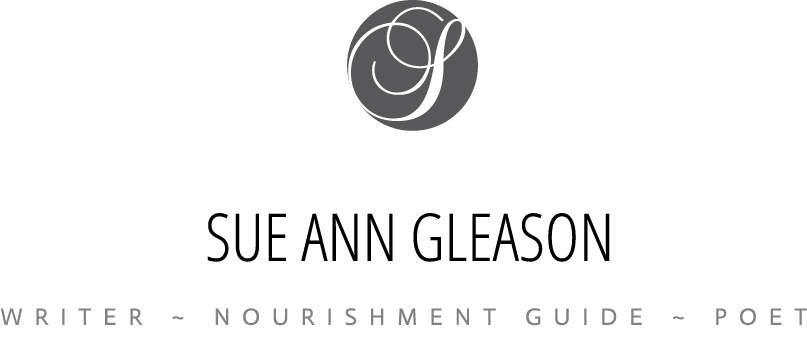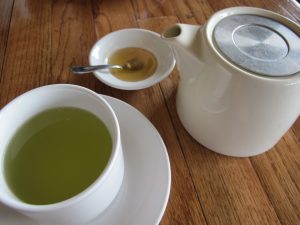I woke up this morning ready to greet the day with grace and gusto but shortly after my feet hit the floor I could tell I was in for a challenge. My head was pounding—very rare for me. I can’t even remember the last time I said, “Not now, honey, I have a headache.”
Now I must tell you, while most people reach for the bottle of Advil when they’re feeling a little under-the-weather, I like to just observe my symptoms, let them run their course, and then ponder possible causes.
I searched. I pondered. I mulled. I mused. I went about my day. The headache persisted.
Now I have to admit, this is just speculation, but the only thing different about my week was that I added green tea to my repertoire.
Green tea has caffeine, however, it has been theorized that when caffeine is consumed in moderation, especially as a natural part of a polyphenol-rich beverage such as green tea, the caffeine actually provides health benefits.
Here’s what the “experts” say, “Polyphenols, the primary antioxidants that are found in green tea, have been consistently shown to protect liver function due to their antioxidant and anti-inflammatory properties. The polyphenols may also protect against certain types of cancer, heart disease, diabetes, and neurodegenerative disease.”
I don’t particularly care for green tea but after reading about its health benefits I went looking for the “perfect” green tea. I found a whole leaf organic “Jasmine Green” and it was so yummy I started drinking a cup of that tea each day.
Well, my head was still pounding at 4:00 and we had dinner plans. A foodie never misses an opportunity to check out a new restaurant, so I brewed a cup of Jasmine Green. Guess what? You got it. No more headache.
Was this a caffeine response? I really don’t know. I gave up caffeine over 25 years ago. (My head pounded for a week—much like the headache I had today.) What’s the lesson in all this pondering? We all need to maintain a healthy level of skepticism in considering “scientific” research:
• Who stands to profit from a given outcome?
• Who paid for the study? A company that will profit from a certain finding? A government grant to a university? Or was the study completed by a government or non-profit agency?
But mostly I want you to think about the frequency with with you consume a particular food or beverage. There’s a big difference between eating/drinking something for a treat vs. eating/drinking something for a fix.
So the next time you reach for that scrumptious morsel of dark chocolate, a glass of red wine, or even a cup of “healthy” green tea, savor it as though it’s a treat and question it when it becomes a habit.


